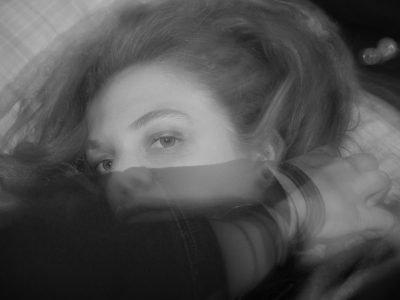
25 + 54 points
Proverb Proof by The Beekeeper
October 23rd, 2008 6:38 PM
Title: A Watched Pot Never Boils: Investigating the truth behind the proverb
Abstract: This experiment examines the effect of physical observation on a pot of water's ability to reach a temperature of 100 degrees Celsius. While the proverb suggests that a pot, when physically observed, will never reach a boil, this experiment serves to not only disprove that statement, but to also compare the temporal effects physical observation may have on said pot.
Materials:
40 oz. - San Francisco Tap Water at room temperature
1 - Pot
1 - Hot Plate (substitute Gas Burner)
1 - Timer
 Procedure:
Procedure:
Watched Pot
1. Pour 5 cups of water into the pot.

2. Light Gas Burner, begin timer

3. Watch pot unceasingly (Note: If you remove your eyes from the pot at any time, you must begin the experiment again.)







4. Watch for bubbles beginning to form as the temperature of the water rises.

5. When(If) the water begins boiling, stop timer and record time.
6. Turn off Burner, Empty water
7. Allow pot to return to room temperature (wait 1 hour)
Un-watched Pot:
1. Pour 5 cups of water into the pot.
2. Light Gas Burner, begin timer
3. Look away from the pot but remain near enough to hear the sound of boiling. Avoid loud music at this time in the experiment.
4. When you hear the sound of boiling, stop timer and record time.
5. Turn off Burner, Empty water
Observations:
Watched Pot: The watched pot boiled in 6:39 seconds

Unwatched pot: The unwatched pot boiled in 6:44 seconds.
 Conclusion: A pot of water, when physically observed does in fact boil. In addition, the act of physical observation, as demonstrated in this experiment, is actually a catalyst, causing the pot of water to boil in a shorter amount of time than a pot left-unobserved.
Conclusion: A pot of water, when physically observed does in fact boil. In addition, the act of physical observation, as demonstrated in this experiment, is actually a catalyst, causing the pot of water to boil in a shorter amount of time than a pot left-unobserved.
Abstract: This experiment examines the effect of physical observation on a pot of water's ability to reach a temperature of 100 degrees Celsius. While the proverb suggests that a pot, when physically observed, will never reach a boil, this experiment serves to not only disprove that statement, but to also compare the temporal effects physical observation may have on said pot.
Materials:
40 oz. - San Francisco Tap Water at room temperature
1 - Pot
1 - Hot Plate (substitute Gas Burner)
1 - Timer
 Procedure:
Procedure:Watched Pot
1. Pour 5 cups of water into the pot.

2. Light Gas Burner, begin timer

3. Watch pot unceasingly (Note: If you remove your eyes from the pot at any time, you must begin the experiment again.)







4. Watch for bubbles beginning to form as the temperature of the water rises.


5. When(If) the water begins boiling, stop timer and record time.
6. Turn off Burner, Empty water
7. Allow pot to return to room temperature (wait 1 hour)
Un-watched Pot:
1. Pour 5 cups of water into the pot.
2. Light Gas Burner, begin timer
3. Look away from the pot but remain near enough to hear the sound of boiling. Avoid loud music at this time in the experiment.
4. When you hear the sound of boiling, stop timer and record time.
5. Turn off Burner, Empty water
Observations:
Watched Pot: The watched pot boiled in 6:39 seconds

Unwatched pot: The unwatched pot boiled in 6:44 seconds.
 Conclusion: A pot of water, when physically observed does in fact boil. In addition, the act of physical observation, as demonstrated in this experiment, is actually a catalyst, causing the pot of water to boil in a shorter amount of time than a pot left-unobserved.
Conclusion: A pot of water, when physically observed does in fact boil. In addition, the act of physical observation, as demonstrated in this experiment, is actually a catalyst, causing the pot of water to boil in a shorter amount of time than a pot left-unobserved.
19 vote(s)
3




















Ink Tea
2
Mr Everyday
2
rongo rongo
5
done
3
LittleMonk
3
teucer
2
praximity
4
Optical Dave
1
Kid A
4
HKEY_Current _User
1
Darkaardvark
3
Augustus deCorbeau
1
Loki
5
Anna Louise
5
Morte
2
Charlie Fish
4
Francis Worthing
1
Stark
3
Poisøn Lake






































Nice! It would be interesting to see if the observation effect is multiplied with more than one set of eyes watching.